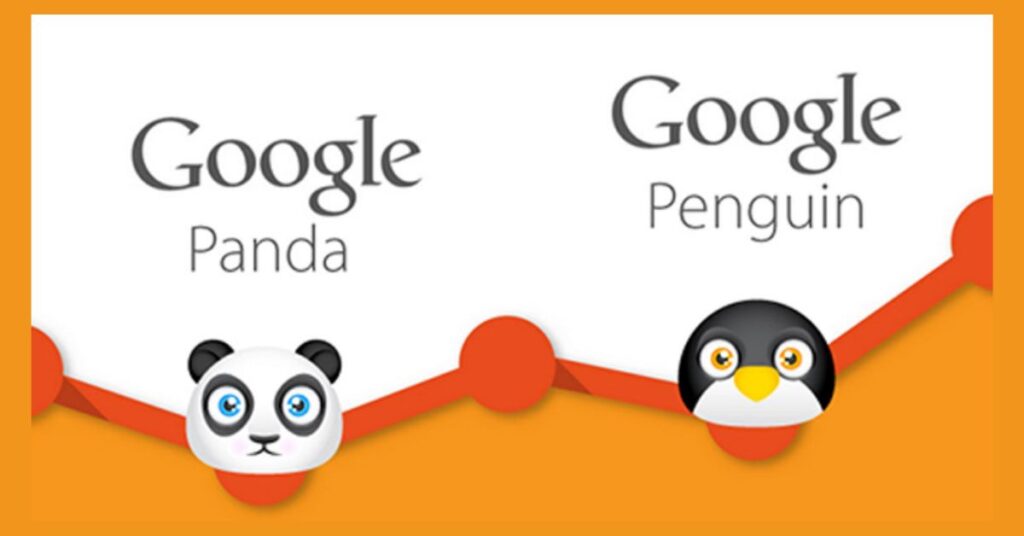Google updates known as Panda and Penguin specifically target websites with keyword stuffing and poor linking.Google released its second upgrade in 2011 with the Panda update and a year later with the Penguin update. Both of these Google improvements have been successful in preventing spammy term stuffing.
All websites that steal various pieces of information from other websites without contributing their own are targeted by Google Panda .Which also targets low-quality material. Penguin also targets websites that use keyword stuffing and spam links to stop them from functioning. Your website may be impacted by new updates for several reasons.Your website has low-quality backlinks, keyword stuffing, outdated SEO, hidden links, and poor content.
You will contact Google using an automated query that is directed to the impacted website.The webmaster was stunned by the latest upgrade because it impacts numerous websites. The goals of these modifications are to boost the SEO result. For update you need that you essential get the better . So check the penalty procedure of Google .
1: Purchase a new domain for your website in the event of a 404-page error.
2: For the article’s internal SEO you need special focus on it .
3: Obtain credible and pertinent links for your website.
4: Take out the extra links.
5: Avoid the bad links .
6: To avoid a Google penalty, remove the duplicate material from your website.
What is the Panda and Penguin Algorithm?
Two algorithms, Google and Penguin, verify the website’s rating based on relevance. The modifications to this algorithm aid in optimizing the search results. Although there are many websites hosted globally, relatively few of them are ranked in Google. In order to improve a website’s rating, SEO is crucial. The elements of SEO are used in this algorithm to rank the different pages.
What is Panda and Penguin in SEO

Penguin and Panda We refer to the process of increasing the relevance and ranking of a website as SEO. Thin and subpar material is penalized by this SEO. It has been created in a way that filters out faulty links and content that stuffs keywords into low-quality articles.The basic goal of Panda and Penguin SEO is to make search engines favor high-quality material while penalizing low-quality and subpar information.
Panda:When Google Panda was originally introduced in 2011. It made clear that it would penalise websites with poor quality or light content while rewarding those with excellent and substantial content. The update singled out websites that used duplicate content, keyword stuffing, and other unethical SEO practices. Additionally, it stressed the significance of analytics for user engagement and user experience on a website. While sites with good content saw improvements, websites that were impacted by the Panda upgrade witnessed major decreases in their search engine ranks.
Penguin: In 2012, Google Penguin was introduced to fight spammy and deceptive link-building techniques. The upgrade specifically targeted websites that manipulated links to increase their search engine rankings. The Penguin update penalised websites that engaged in activities like link buying, joining link farms, or using an excessive amount of anchor text that was keyword-rich. Websites affected by Penguin frequently saw a sharp decline in their ranks and had to struggle to recover by getting rid of or disavowing low-quality links.
Both the Panda and Penguin upgrades were significant changes that aimed to improve web index results by penalizing websites that didn’t adhere to Google’s quality guidelines. Web optimization specialists and site owners must stay current on these calculation adjustments in order to protect their websites.
If Your Website Influences the Panda Algorithms, What Actions Should You Take?

If you have an issue with this, the solution is fairly straightforward. Verify the content on your website and add unique, high-quality information. The link was thoughtfully placed to the website by the site owner. Due to the fact that the Panda algorithm is an integral part of the Google core, it constantly monitors website rankings, penalizes low-quality material, and verifies site rankings.Your website’s performance can be evaluated in various ways.
1: Content review
Check the website’s content. Remove any duplicate content from the website if you have any. Use original and helpful material to boost your website’s ranking.
2: Adding backlinks
Verify the linking Remove any servile backlinking from your website if you have any.
3: Having your website indexed
Request here to optimize your content as Google search console evaluates a significant number of URLs for indexing each month.
Key Differences Between Google Panda and Google Penguin
Google Panda launched in February 2011 and targets the content quality . It reduces the low quality ,thin,and duplicated content .It improves those websites that provide the special ,high quality and user friendly content .Google panda works on the duplicate and poor content ,unauthorized, keyword stuffing .So panda create original ,high-value and well organized content .
Google launched April 2012 after the Google panda .It targeted the backlink quality and it penalised those scammers who use the link the spammy or paid link building. Its main goal is to rank the websites with natural, relevant and reliable backlinks . It impacts the websites that have unusual backlinks profiles, web spamming and over optimized the anchor text . It cleans up the deadly ,harmful links and creates the natural links that are valid for websites .
Conclusion
Google Panda and Penguin are two powerful algorithms that changed the history of SEO .These two algorithms improved the quality of search results and penalized the scammer .Google Panda began 2011, its focus to prevent the low quality content and duplicate content .It gave the valuable and well designed content . It panelized the keyword stuffing ,poor and duplicate content .Google Penguin started in 2012 it targeted the backlink quality and it stopped the website maniulating ranking .It has quality to remove the spammy and unusual link . So these two have an important role in SEO and encouraging fair practices. These two updates thrust the website owners to direct attention to accurate ,relevance and user experiences .

